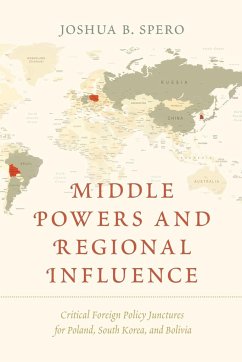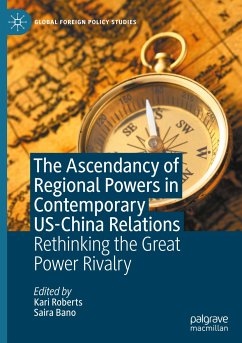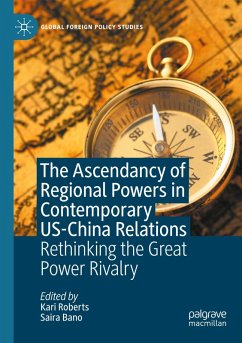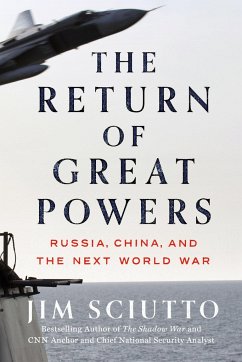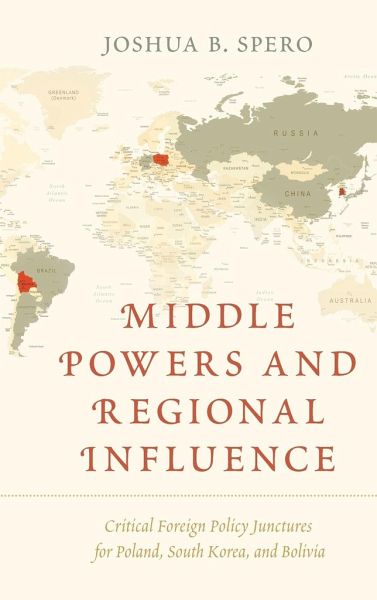
Middle Powers and Regional Influence
Critical Foreign Policy Junctures for Poland, South Korea, and Bolivia
Versandkostenfrei!
Versandfertig in 1-2 Wochen
144,99 €
inkl. MwSt.
Weitere Ausgaben:

PAYBACK Punkte
72 °P sammeln!
In the growing literature on middle powers, this book contributes by expanding case study analysis and extending international relations theory in its application to foreign policy decisions. Thus, this book builds on prominent middle power literature and aims to advance our theoretical understanding for why crucial foreign policies were made by the "pivotal middle" powers this book examines-Poland, South Korea, and Bolivia. For this book's three case studies and their first-term leadership's critical junctures-from first term post-communist Poland, post-authoritarian/post-ruling party South K...
In the growing literature on middle powers, this book contributes by expanding case study analysis and extending international relations theory in its application to foreign policy decisions. Thus, this book builds on prominent middle power literature and aims to advance our theoretical understanding for why crucial foreign policies were made by the "pivotal middle" powers this book examines-Poland, South Korea, and Bolivia. For this book's three case studies and their first-term leadership's critical junctures-from first term post-communist Poland, post-authoritarian/post-ruling party South Korea, and post-colonial Bolivia-we have the antecedents for contemporary middle powers essential for realizing the regional evolution for cooperative change with greater powers systemically; we may then grasp today why those historical foreign policies, albeit not so long ago, give us crucial antecedents for adapting and trying, yet again, to resolve seemingly perennial power dilemmas regionally, peacefully. Here are why middle power impact matters, not only regionally for stronger, dominant greater power neighbours, but also for transformative middle power leaderships which proved pivotal geopolitically for their region's challenges and changes.





